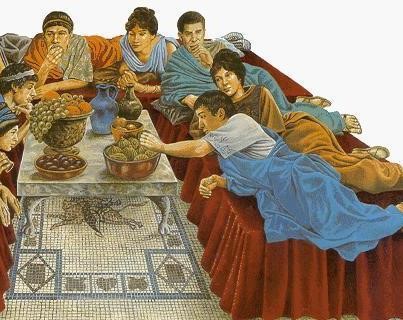Food and “Excess” in Rome by Desiree Lewis
This is the first post in the Reflections on Food, Fun and Culture in Rome where we will do a series of blog posts over the next few days. The purpose of these posts is to capture conversations, experiences, and reflections of exploring the food and culture in Rome. It will also cover other critical reflections on key issues that emerged during the food studies conference.
On the day of our arrival, we were driven to our hotel by a taxi driver who consistently crossed invisible behavioural boundaries. He laughed really loudly; he was excessively sociable; his shoes were over-the-top; he flirted outrageously. But he was very likeable. An uninhibited person who really didn’t seem to care much about what he should do, and who chose, in the way he wore his flamboyant socks without shoes, to do what he wanted to do.

Arriving at hotel in Rome
One of the neglected aspects of current thinking about “decolonization” is the extent to which our cognitive and conceptual world is shaped by destructive dualisms: dualisms that dichotomize, for example, moderation and excess (very malleable standards), so that “excess” comes to connote lack of civility, crudeness etc.
It’s been instructive to think this through in Rome, where a long national food culture, (comprising several complex regional and class-based cuisine), has shaped distinct ideas about food, eating, and pleasure. No doubt, various social historians, and foodies have explored this historically and rigorously. But a blunt historical perspective involves thinking about how the ancient Romans are habitually caricatured as excessive revelers, especially excessive food consumers. There are indisputable political dimensions to this, and excessive food consumption then, as is the case today, was linked to the inhuman treatment of others – slaves, underclasses, inferior nations and so on.
But maybe the caricaturing is also driven by a deep-seated Calvinist and rationalist anxiety about venturing into the territory of “excess”. The small restaurant not far from our hotel, La Trottaria is run by a family who have for years made and served delicious food. It’s frequented by Italians and not tourists, and people go there for serious eating: full meals in-between or after work of lunch (bread, starter, main, wine, and dessert) and for dinner (more bread, starter, main, wine, and dessert). The owner’s daughter who served me chastised me for “rushing” and not eating the jam tart she specializes in for dessert – even though I spent far longer at the restaurant than the average time I’d spend with a group at a Cape Town restaurant having lunch. On the walls of the restaurant are pictures of various celebrities reveling in what can only be described as sheer gustatory pleasure (what some of us might call “guzzling”): spaghetti spills out of one person’s mouth; another’s eyes bulge as he opens his mouth wide to accommodate the mound of gnocchi and bolognaise on his fork. For many of us, this is a strange and unsettling dimension to eating, an aspect that we often feel discomfort and anxiety about, and that we are taught to mock, ridicule or condemn. Conspicuously enjoying food – we have learnt – is dubious, disturbing, vulgar, being out of control. And only food outlets like the Spur or Kentucky Fried Chicken advertise food with images of people binge-eating.
Maybe this is the case. But the fact of the matter is that eating food opens up similar moral, ethical and sensory dilemmas that sex does. For example, what is excess, really? Who defines excess in terms of pleasure? Is excess sometimes important, what the feeling human body craves and has a right to? Or is excess inherently wrong?
It’s no coincidence that the Italians are not Calvinists, since Calvinism clamps down ruthless on the “excessive” and “immoderate” body – whether this body is seen to be eating, having sex, crossing behavioural boundaries like our taxi driver, sleeping immoderately….
Close observation of the everyday often tells us much more than vast amounts of talk at conferences, in lecture theatres, or through reading. And the everyday in Rome most definitely does.

